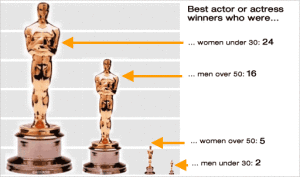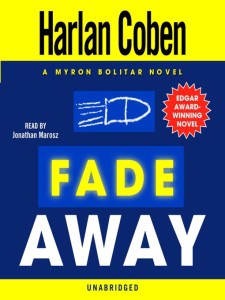Posted by Joe Moore
Recently, my fellow Kill Zone blogmates John Gilstrap and Michelle Gagnon posted blogs that addressed the announcement of the 2009 ITW Thriller Awards nominees and the judging procedure. Both blogs raised questions and concerns, and generated a large number of comments. To address those issues, I asked ITW Vice President of Awards Vicki Hinze to comment on how the current judging was conducted and what the future holds for the Thriller Awards process.
I’ve been out of town and just returned and saw the threads, so I thought I’d add a little insight, though I think the subject’s been pretty well covered. Still, a little more insight into this might put some minds at ease, and I’m all for that. Also, please note that I’m speaking for myself and not as a member of the ITW Board.
 Last year, I chaired the ITW Awards, and we did have separate categories for Best Hard Cover, Best Paperback Original and Best First Novel. All three awards named Finalists and Winners.
Last year, I chaired the ITW Awards, and we did have separate categories for Best Hard Cover, Best Paperback Original and Best First Novel. All three awards named Finalists and Winners.
In response to members’ comments, wishes and desires, we studied the market and discovered (no doubt many knew already, but we did study this) and determined that the format of a book is determined by readership and that varies publishing house to publishing house. In short, format is largely a marketing decision. The bottom line was that two categories, Best Novel and Best Paperback Original were combined for this year’s contest.
This year, when the scores came in, more analysis took place on the results. I’m serving as Awards VP, and I informed the Board that I would be asking that the awards again be separated. This will be on the agenda at the board meeting in July. If that vote goes as I hope it will, then the categories will be Best Hard Cover Novel, Best Paperback Original Novel, Best First Novel (which combines all debut novels–hard cover and paperback [mass and trade]). This year, we added an award for thriller Short Stories (which includes novellas) and next year we will continue it and we hope to add one for nonfiction.
One of ITW’s strengths, I believe–and it is this belief that got me to join and then to volunteer to judge and then to act as award’s chair and ultimately acted as a catalyst for me when it came to Board service–is that ITW remains open and flexible and seeks what is in the best interests of its members. That’s its top priority–and I say that as one who’s witnessed its workings and its methods of weighing potential programs and retaining or adjusting existing ones. (i.e. eliminating author membership dues)
ITW is a young organization and yet look at all it has accomplished for thriller writers. Has it been perfect since inception? No. No more so than any of us as individuals have been perfect. But ITW does strive to elevate potential for all involved, seeking win/win situations and solutions. I love that about the organization.
One reason, I think, for ITW’s success is its willingness to try different things and atypical approaches. Some have been enormously successful. Combining the categories for Best Novel and Best Paperback Original was not. I have no problem with saying an attempt made in good faith for logical reason on anything failed. Where I would have a problem would be in knowing it failed, in feeling confident it would continue to fail, and not doing anything to change it. That situation would be doing a disservice to members. Making changes that could benefit our members is a worthy goal.
So please understand that action is being taken on this matter. Can I say we won’t have future attempts that end up with results we find lacking? No, I can’t. I can tell you that we’ll continue to make every reasonable effort to create win/win situations for members. When a challenge is spotted, it’ll be addressed and hopefully resolved in a manner that best serves the majority of members.
Remember that we’re a progressive organization. We dare to try different things in different ways, seeking to do all we can to bring added benefits. Personally, I don’t see that as a flaw but as an asset. Change spurs growth; growth, productive change. It negates stagnation, and that’s a wonderful thing, in my opinion, because stagnant things die.
I do hope that this post eases minds. I’m not idealistic enough to believe that everyone will be satisfied with any program. But I do want you to know that we are trying to incorporate the desires and requests of members and to devise a program that satisfies the majority of members.
I don’t recall saying that the experiment of combining the two categories failed. But frankly, I am not satisfied with the outcome. It wasn’t good enough and I think we can do better. So that’s the goal. To do better.
This year, the structure of the program is behind us. Its benefits and drawbacks have been reviewed and we have a plan for a path with more benefits and fewer drawbacks to pursue–and we’re pursuing them. Please feel free to leave any comments on how to make the program better and stronger. I promise I’ll reply to all constructive suggestions.
Blessings,
Vicki Hinze
Vice President, Awards
International Thriller Writers
www.vickihinze.com
Vicki Hinze is the author of 21 novels. She holds a Master of Arts in Creative Writing and a Doctorate in Philosophy, Theocentric Business & Ethics. She actively lectures on writing craft and technique and philosophy.
Her articles have appeared many respected publications and e-zines (Novelists, Inc., Romantic Times, Romance Writers’ Report, The Outreacher, The Rock and others) and have been extensively reprinted in as many as sixty-three foreign markets. She has coordinated and/or judged national and international writing competitions, served on various writers’ association committees, has been honored by Romance Writers of America with their National Service Award and in 2004 was named PRO Mentor of the Year.
Vicki is a charter sponsor of International Thriller Writers and serves on its Board of Directors. She’s a member of The Authors Guild, American Christian Fiction Writers, Novelists Inc., Romance Writers of America, Mystery Writers of America, Published Authors Network, Emerald Coast Writers, ACRA, Deep South Christian Writers and other writing organizations.






